-
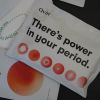 +2 +1
+2 +1The race to understand—and profit from—period blood
Why has it taken science so long to take it seriously?
-
 +2 +1
+2 +1Your Poop Schedule Says a Lot About Your Overall Health, Study Suggests
A new study published Tuesday in Cell Reports Medicine reveals that bowel movement frequency significantly influences physiology and long-term health, with the best outcomes linked with passing stools once or twice a day.
-
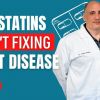 +3 +1
+3 +1What They Don't Tell You About Statins
-
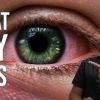 +2 +1
+2 +1How to Treat Dry Eyes Like an Ophthalmologist
-
 +32 +5
+32 +5Forever Chemicals Seep Through Human Skin, Alarming Study Confirms
An inescapable form of human pollution is seeping into our bodies in ways we never fully realized.
-
 +28 +4
+28 +4Human culture is changing too fast for evolution to catch up – here’s how it may affect you
Human culture has changed too fast for evolution to keep up. A theory that can help explain why we respond poorly to modern conditions, despite the choices, safety and other benefits they bring, is evolutionary mismatch.
-
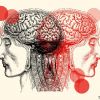 +34 +5
+34 +5Many mental-health conditions have bodily triggers
Psychiatrists are at long last starting to connect the dots
-
 +26 +4
+26 +4Can you actually avoid “forever chemicals” in your diet?
Today, more than 97% of the national population has PFAS in their bodies, according to the CDC
-
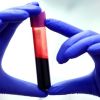 +29 +6
+29 +6The Blood of Exceptionally Long-Lived People Reveals Key Differences
Centenarians, once considered rare, have become commonplace.
-
 +50 +12
+50 +12A decades-long drop in teen births is slowing — and advocates worry a reversal is coming
The war against abortion rights, sex ed and more may unravel decades of progress
-
 +34 +6
+34 +6A Strange World of Organisms Lives Inside You, But Not Like You Think
There are myths about the whole world inside your gut, made up of mostly harmless and often helpful microbes that reside in the gastrointestinal tract.
-
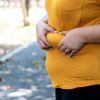 +25 +2
+25 +2Obesity might be one of the causes of depression, study suggests
A meta-analytic review of previous studies indicates that obese individuals have an increased risk of depression and that this relationship isn't just correlational -- obesity might be one of the causes of depression. The researchers argue that the increased occurrence of depression in the population in recent decades might be at least partly due to the increase in obesity. The study was published in the Journal of Psychiatric Research. ...
-
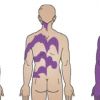 +36 +4
+36 +4Humans Actually Have Secret Stripes And Other Strange Markings
Humans have invisible skin patterns, due to a quirk in how our enveloping layer forms.
-
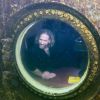 +10 +1
+10 +1Man spends 93 days at the bottom of the Atlantic - now he's 10 years younger
Retired naval officer Joseph Dituri has spent more than three months living inside a 100sqft pod in the depths of the Atlantic Ocean to research the effects of pressurised environements on the human body
-
 +18 +5
+18 +5Breakthrough in disease affecting one in nine women
Australian researchers have made a major leap forward, paving the way for the treatment of endometriosis, which could rapidly change health outcomes for women.
-
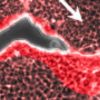 +19 +8
+19 +8Zig-Zag Cuts Heal Differently to Straight Incisions, And Now We Know Why
Not all surgical incisions are the same.
-
 +21 +3
+21 +3The Human Brain Shows a Weird Preference For Sounds From The Left
The next time you whisper sweet-nothings into someone's ear, you might want to target their left side.
-
 +29 +7
+29 +7The Most Commonly Repeated Vaping Statistic Is Fake
But one of those "guesstimates" has gone on to become the most cited piece of vaping misinformation globally: e-cigarettes are 95 percent less harmful than tobacco cigarettes. The problem is, it's wrong.
-
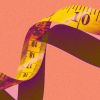 +21 +4
+21 +4Dicks Are Getting Longer and Scientists Don't Know Why
The average penis length worldwide has increased by 25 percent in recent decades — and the scientists who discovered this apparent growth spurt say it might not be a good thing. In a paper published on Valentine's Day in the World's Journal of Men's Health, Stanford researchers observed that per their meta-analysis of decades of studies, the length of erect penises has increased 24 percent — from 4.8 inches to about six — over the past roughly 30 years, even as testosterone levels and sperm quality have declined.
-
 +18 +2
+18 +2Stand on one leg – and 16 other life-changing daily moves that will keep your body happy
Are you sitting comfortably? Well, get up! Stay healthy and supple by adding these basic movements to your daily routine
Submit a link
Start a discussion




















